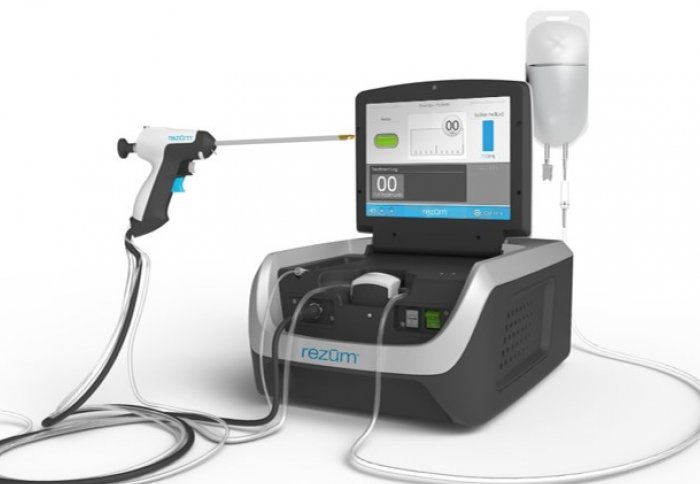Imperial urologist is first in London to perform pioneering prostate treatment
by Ryan O'Hare

A leading Imperial urologist is set to trial a pioneering treatment which could improve the lives of thousands of men with an enlarged prostate.
Professor Hashim Ahmed, Chair in Urology at Imperial College London and a consultant at Imperial College Healthcare NHS Trust, will be one of the first to perform the procedure today at Charing Cross Hospital
The new technique aims to replace a procedure which takes over an hour and includes 2–3 days of hospital stay with a 10–15 minute procedure under sedation/local anaesthetic with patients able to go home that same day.
It’s great that we can now offer a treatment which is less invasive and carries less side effects for our patients
– Professor Hashim Ahmed
Chair in Urology
One in three men over the age of 50 are thought to be affected by an enlarged prostate. Symptoms can include needing to visit the toilet more frequently and with more urgency and experiencing difficulty emptying their bladder.
Thousands of men have the traditional operation, called a transurethral resection of the prostate (TURP) by electrocautery or laser every year in the NHS.
The new procedure, which is called Rezum Water Vapour, injects small amounts of steam into the prostate. The steaming process permeates throughout the tissue which then allows the gland to shrink as it repairs itself, relieving the symptoms.
A large randomised study in the United States has shown it is effective at relieving symptoms and carries little risk of side effects.
This is the first time the procedure will be performed in London and only the second time in the UK.
“It’s great that we can now offer a treatment which is less invasive and carries less side effects for our patients,” said Professor Ahmed.
“This treatment will not only be a better alternative for men facing a longer procedure with added recovery time but we can also offer to those who are on life-long medication who opted not to have surgery because they were worried about side effects of traditional surgery.”
-
This article is adapted from material provided by the Imperial College Healthcare NHS Trust.
Article text (excluding photos or graphics) © Imperial College London.
Photos and graphics subject to third party copyright used with permission or © Imperial College London.
Reporter
Ryan O'Hare
Communications Division